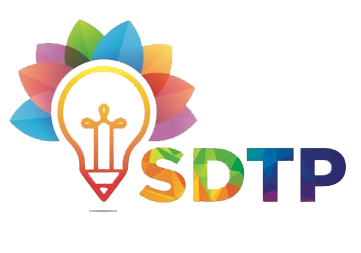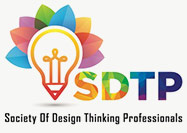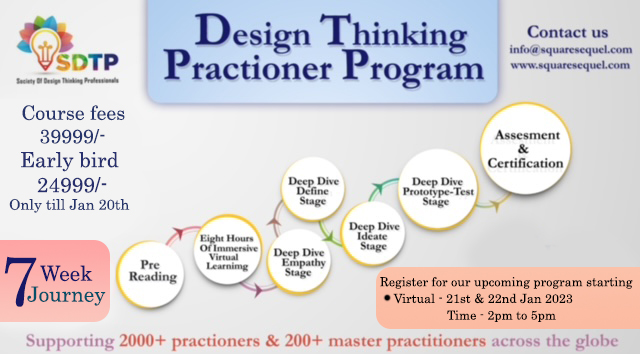Jahnvi set her foot on an arduous, albeit rewarding journey of continuous learning and self-development – becoming the ‘boss’ for the first time. When she asked her seniors about their early days as a boss, there were tales of disorientation and overwhelming confusion. The tales made Jahnvi a little apprehensive as the role felt too big for her to handle. She did not want the tale of her early days as a boss to haunt or hobble her throughout her career. She dwelled in the research to address the challenges of first-time managers so that she can become the leader her people deserve.
She began her transformational journey to become a leaner and more dynamic leader for her people. She has discovered the requisites of becoming a first-time manager, her values, locus of control, setting goals, and achieving them, her learnings from The Strangest Secret, how to handle the missed goals, an overview of feedback, the gateway to discovering the blind spot, frameworks of feedback, and the concepts of feedforward.
Jahnvi ascended the ladder of managing others and successfully covered everything that falls under feedback, now it’s time to take a step ahead to explore other aspects of managing others. She aims to be the leader who supports and encourages her team to stay engaged while meeting objectives and advancing in their careers. She understands that managerial acumen alone will not help her achieve her goal as a leader and she needs something more powerful to amp up her game.
While searching for something to add a greater value to her leadership skills, she found the trait that will matter most to her team and herself. According to a study performed by the Australian Institute of Management Education and Training, interpersonal skills are the most essential characteristic of effective leaders. The top three characteristics that leaders should have, according to survey participants, are communication, emotional intelligence, and people management. Soft skills such as decision-making and strategic thinking, as well as concrete skills such as financial management and data analysis, were rated higher than all three characteristics.
“No man is an island.” – John Donne
Jahnvi did not realize it, but she already has interpersonal or people skills. We all learn to get along with others from the day we are born. Positive daily interactions, whether in work or our personal lives, do not always “just happen.” Getting the results we need can be difficult if we don’t “click” with people or don’t know how to behave or say the right thing. That is why, regardless of the position we hold, strong interpersonal skills are just as essential in the workplace as “hard” technical skills or formal qualifications. They can assist us in developing good working relationships, managing conflict, motivating our team, increasing productivity, solving problems, successfully networking, and increasing happiness and engagement at work.
The next step Jahnvi took was to examine why interpersonal skills are critical to be an effective leader.
What Are Interpersonal Skills and Why Are They Important?

“Words of comfort skillfully administered are the oldest therapy known to man.” — Louis Nizer
Interpersonal skills are the abilities and competencies that enable you to interact and converse with others. There are very few jobs where someone works entirely on their own; even positions that appear to be mostly solo endeavors require some human interaction and teamwork. Simply stated, interpersonal skills help you to communicate with others.
Sharing ideas and information, developing relationships with coworkers, and understanding what a client wants all rely on effective communication.
To relate well to others, you must first comprehend their thoughts, feelings, and points of view. Empathy enables you to put yourself in the shoes of others.
Almost all occupations require teamwork. To be valuable in those situations, you must understand how to collaborate with others and perform your part in the bigger picture.
“Empathy and social skills are social intelligence, the interpersonal part of emotional intelligence. That’s why they look alike.” – Daniel Goleman
Emotional intelligence is the ability to understand your emotions as well as the emotions of the people around you. Emotional intelligence plays an important role in the workplace. The face of business is changing faster than ever. While change is difficult for everyone involved, having a high degree of emotional intelligence allows you to navigate uncharted waters. It can assist you in better understanding how individuals feel and why they feel that way. This will allow you to provide the proper kind of support to team members during a change initiative or transition as a learning leader.
Interpersonal skills and emotional intelligence go hand-in-hand. Consider your childhood playground: what happened to the kids who didn’t play nice, didn’t share, and generally behaved like bullies? Other kids began to avoid playing with them. If you lack good interpersonal skills, a similar dynamic can develop at work. The inability to work and interact positively with others can be detrimental to your job. No one will put your name forward for that promotion, or think of you when a chance arises that you would otherwise be ideal for. You could be a fantastic software engineer, art director, or marketing manager, but if you’re difficult to work with, the value of your technical abilities is limited.
The understanding and importance of interpersonal skills made Jahnvi ponder upon the areas she needs to focus on and polish to become a better leader. She then started looking for possible ways to refine her interpersonal skills.
Ways To Enhance Your Interpersonal Skills

Jahnvi hits the ground running by maintaining confidence in her role and passion for her organization’s mission. The first step Jahnvi took was to identify the areas where she needed to improve her interpersonal skills. She identified three areas where she needed to focus her efforts:
Self-regulation
Self-regulation in interpersonal relations refers to the ability to manage one’s own emotions, behaviors, and responses in social situations. It involves being aware of one’s emotional state and the impact it may have on others, as well as being able to regulate one’s emotions to maintain positive relationships.
Awareness of your thoughts, practicing empathy, using positive communication, and managing stress in interpersonal relations are important for effective communication and building strong relationships. When you are aware of your thoughts, you can better understand your own perspectives and feelings, and this understanding can help you communicate more effectively with others.
For example, if you are feeling frustrated with someone, taking a moment to reflect on your thoughts can help you identify why you feel that way. This awareness can help you communicate your frustration more productively and constructively, rather than lashing out in anger.
Communication skills
Interpersonal skills are essential in building relationships with others, and one of the most important components of that is effective communication. Developing your communication skills is key to creating meaningful connections, and improving your overall relationships. Here are a few tips to help you hone your communication skills and make the most out of your interactions with others.
Effective Listening and Speaking
The most important aspect of communication is listening. When someone is speaking to you, take the time to give them your full attention and listen to what they are saying. This is the best way to ensure that you understand the message they are trying to get across to you. Once you understand the message, your response should be thoughtful and considerate. Speak clearly and concisely, and try to be as direct and honest as possible.
Paying Attention to Body Language
Body language is an important part of communication and is often overlooked. Make sure to take note of your body language when speaking to someone, and also be mindful of the body language of the person you are speaking with. Pay attention to how you are standing or sitting and how your facial expressions are conveying your message. Also, be mindful of how the other person is responding to your words and actions. This will help you to better connect with them on an emotional level.
Developing your communication skills is an ongoing process, but following these tips will help you to create more meaningful connections with those around you. With practice, you can master the art of effective communication and create lasting relationships with the people you interact with.
Maintaining your integrity
Your ability to adhere to what you believe in is essential to your interpersonal skills. Integrity allows you to compare your choices and decisions when interacting with others to your personal values. It is crucial to your image and personal brand.
This can help you stay on schedule daily. Simply engaging with others in a friendly, polite manner, for example, can have a significant impact on those around you. It can help you navigate difficult but possibly rewarding situations, such as working with competitors. It is especially essential if you are in a position of authority.
Making choices at the workplace
When there is a need to make informed decisions, you need to first identify the decision to be made, then gather the information about the decision, evaluate the options, and consider the potential consequences (take into account the short and long-term effects of the decision including both positive and negative). Then it is time to make a decision, take action, and evaluate the results of the decision.
Making choices at the workplace is an ongoing process, and it is vital to frequently evaluate your decisions and make adjustments as per the needs.
Receiving Feedback
As a manager/leader, you already provide input, however, it should be reciprocal. The best method to communicate with your staff and build trust is for them to know they can provide feedback to you. It’s another opportunity to learn by taking what’s said to improve your position as a manager. The more open you are to getting feedback, the more your team will trust you as a manager, while also demonstrating to those above you that you are eager to learn.
Building Trust
Trust is vital between you and your team, as well as between you and your superiors. It is how your company will be effective. Although your team may already have faith in you, it is equally essential to earn and maintain that trust. Your words will have a much greater impact as a trustworthy boss who demonstrates empathy, and you will have a close-knit group of people who depend on you. However, you must also demonstrate that you believe them.
Jahnvi knew that she had to prioritize her emotional intelligence to form a power-packed team. She understands the incredible value of interpersonal skills as they can take her forth in her journey to underpin her team’s ability to collaborate and work together to take the organization to new heights. As the new era requires a multitude of skills to stay in the race, Jahnvi buckled up to evolve with every new challenge to get ahead in her career and make her team rise as she rises above and beyond to succeed.
https://www.nexalearning.com/blog/bid/51162/interpersonal-skills-at-work-quotes
https://graciousquotes.com/interpersonal-skill/
https://culture.io/resources/lessons-for-first-time-managers/
https://blog.moderngov.com/interpersonal-skills-to-help-make-you-a-better-manager
https://onlinemba.smu.edu/blog/interpersonal-skills-leadership/
https://cdn.corporatefinanceinstitute.com/assets/interpersonal-skills.jpg
Written By: Jimmy Jain
Edited By: Afreen Fatima
Society of Design Thinking Professionals









